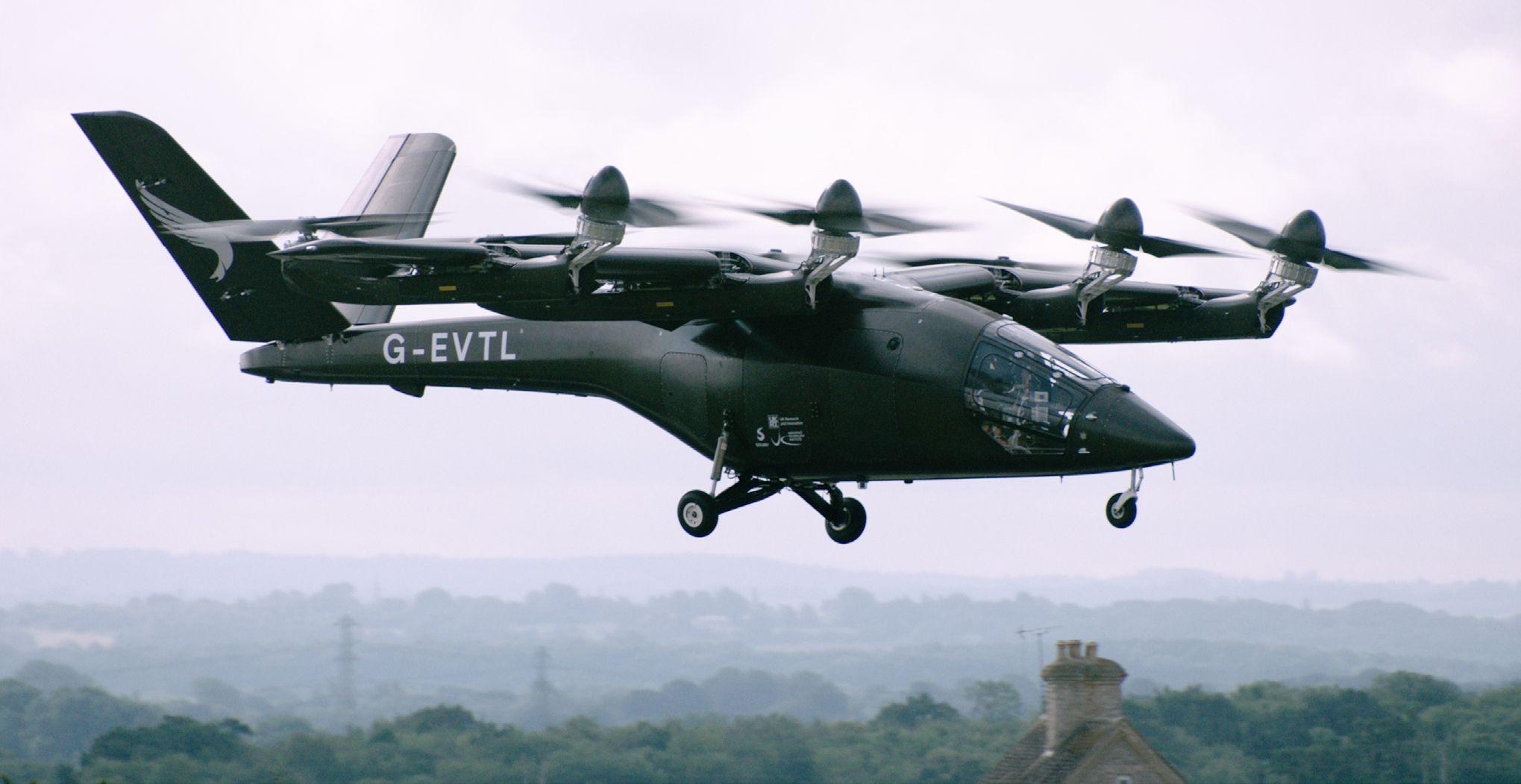
The full-scale VX4 had completed thrust-borne flight up to 40 kt. when it crashed during an uncrewed hover test.
Vertical Aerospace’s VX4 technology demonstrator crashed on Aug. 9 when a propeller failed during an uncrewed flight to test performance with one of its eight electric motors inoperative.
With the root cause quickly identified, Vertical says its certification target of late 2026 remains unchanged.
Having initially conducted tethered hover tests in 2022 with a pilot on board, Vertical completed remotely piloted thrust-borne flight tests in July, reaching the target speed of 40 kt. Vertical then continued uncrewed tests with the aircraft in preparation for planned piloted flights.
“During one of these test flights, an unexpected fault occurred causing the aircraft to enter a stable descent, before being damaged on impact with the ground,” the company says. “Vertical’s investigation identified the root cause to be a fault with a propeller.”
The VX4 has four propellers aft of the wing providing lift only and four propellers forward of the wing that tilt to provide lift in vertical flight and thrust in wing-borne forward flight. Vertical says the propeller had already been redesigned before the incident, ahead of the next phase of testing.
Speaking to The Air Current, Vertical’s Chief Engineer David King said a blade departed the right inboard tilting propeller in hover, causing its supporting pylon to fail. The flight control system automatically shut down the affected motor and spooled up the intentionally disabled motor to compensate.
This should have permitted a safe descent, King told The Air Current’s Elan Head, but the pylon failure affected the data bus via which the flight control computers communicate with the motors. This led to a reduction in power from two additional motors on the right wing.
The asymmetric power loss caused the aircraft to descend, with the right wing hitting the ground and failing as designed for crashworthiness. The landing gear was damaged, but the cockpit and cabin remained intact and the battery pack withstood the impact. Vertical confirms the details of The Air Current story.
Vertical says its certification timeline remains intact. Assembly of a second full-scale demonstrator with more representative structure and systems is underway at partner GKN Aerospace’s Global Technology Center. This piloted aircraft is planned to be ready to fly in early 2024. An additional, identical aircraft has been approved and is expected to be flying in the second half of 2024.
A bigger concern for Vertical is funding. The startup ended the second quarter with £89.7 million ($113.5 million) in liquidity and expectations of spending £40-45 million in the second half of the year and a total of around £80 million over the next 12 months. Vertical has said it intends to raise additional capital this year.
